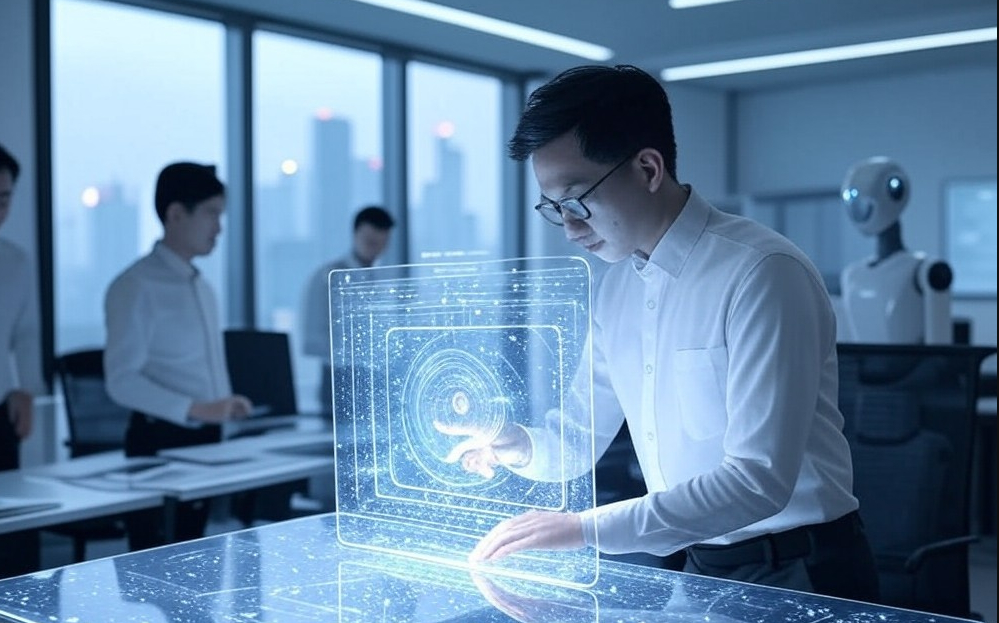The Future of Work: Embracing the AI Revolution
The landscape of the workforce is evolving at an unprecedented pace, driven by the relentless advancement of artificial intelligence (AI). This technological revolution is not just about replacing jobs; it’s about redefining them, enhancing productivity, and opening new avenues for human creativity. Here’s a glimpse into how AI is shaping the future of work:
The AI Integration in Daily Work
AI is no longer a futuristic concept but a daily reality in many workplaces. From automating routine tasks like data entry or scheduling to enhancing decision-making processes through predictive analytics, AI tools are becoming indispensable.
- Automation of Routine Tasks: AI-driven software can now handle repetitive tasks, freeing human workers to engage in more strategic roles. For instance, AI chatbots manage customer inquiries, allowing customer service teams to focus on complex issues.
- Enhanced Decision Making: With machine learning, companies can predict market trends or consumer behavior, leading to more informed strategic decisions. Tools like IBM’s Watson provide insights that were previously unimaginable, turning data into actionable intelligence.
New Job Roles and Skills
As AI takes over certain jobs, it simultaneously creates new ones.
- AI Trainers and Ethicists: There’s a growing need for professionals who can train AI systems or ensure they operate ethically.
- Augmented Human Roles: Jobs are evolving where humans and AI collaborate, like in healthcare where AI assists in diagnostics but doctors provide the human touch.
- Skill Shift: The demand for skills like programming, data science, and AI ethics is soaring, necessitating continuous learning and adaptation among workers.
The Human Element in an AI World
Despite AI’s capabilities, the human element remains irreplaceable in many aspects:
- Creativity and Innovation: AI can suggest patterns and solutions, but human creativity drives innovation, imagining what hasn’t been thought of yet.
- Emotional Intelligence: Jobs requiring empathy, nuanced communication, or emotional support continue to be human-centric. AI can mimic but not master these traits.
- Leadership and Management: The role of leaders in managing AI integration, ensuring ethical use, and fostering an inclusive work environment is crucial.
Challenges and Ethical Considerations
With great power comes great responsibility:
- Job Displacement: The fear of job loss due to automation is real, necessitating policies for retraining and support for affected workers.
- Bias and Fairness: AI systems can perpetuate or even amplify biases if not carefully designed. Ethical AI development is now a priority.
- Privacy Concerns: As AI systems process vast amounts of data, privacy and data security are paramount.
Preparing for an AI-Driven Future
To thrive in this new era:
- Continuous Education: Lifelong learning will be essential as new technologies emerge.
- Adaptation: Businesses and individuals must be agile, ready to integrate new tools and rethink traditional workflows.
- Ethical AI Use: Companies must commit to ethical AI practices, ensuring technology serves humanity responsibly.
The future of work with AI isn’t about replacement; it’s about enhancement. By embracing AI, we’re not just preparing for the future; we’re actively shaping it to be more innovative, efficient, and inclusive.
Links:



